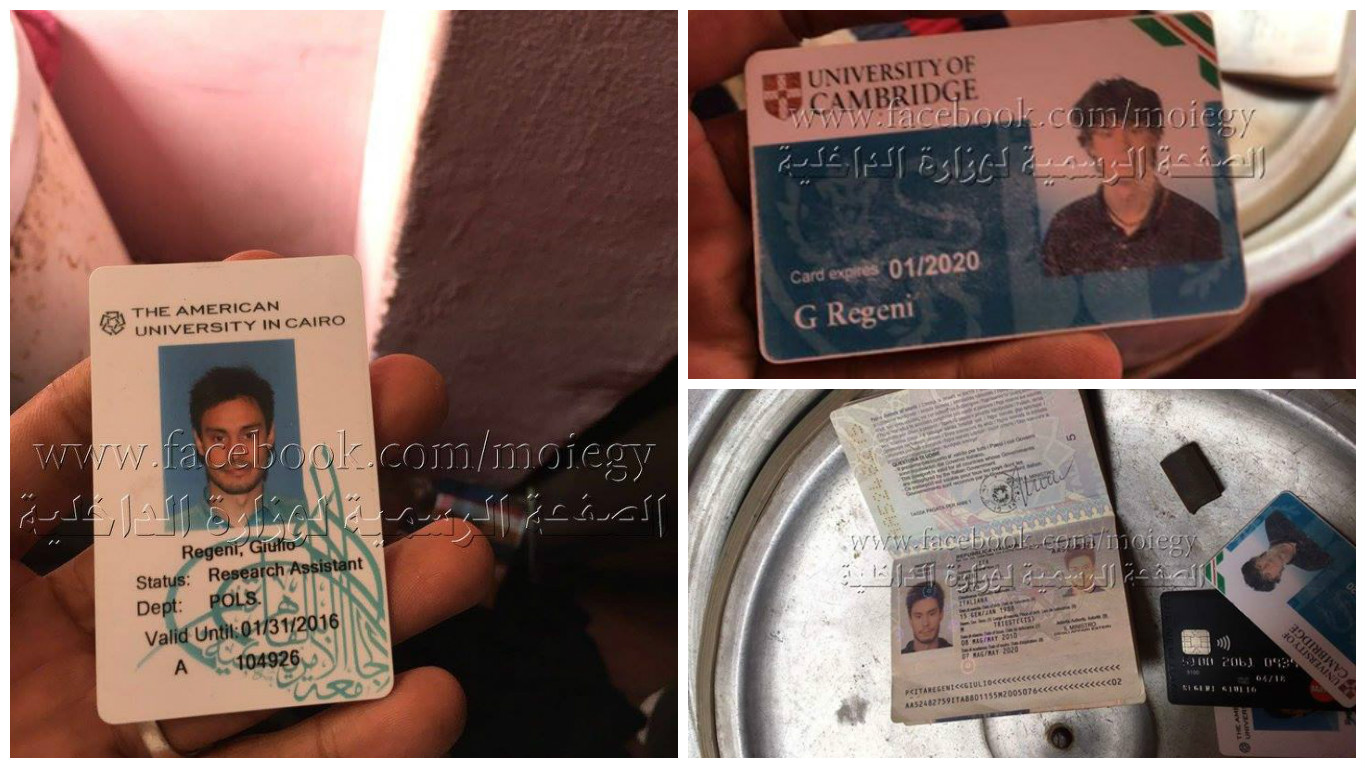Egyptian police say they found murdered student Giulio Regeni’s personal belongings in a “gang member’s” apartment while Italian investigators say the case is “far from closed,” the Italian ANSA reported Friday.
The interior ministry suggested in a statement late Thursday that there may be a link between the slain gang members in New Cairo that allegedly “impersonated policemen” as well as “kidnapped foreigners and mugged them” and Regeni’s murder.
Italian investigators say there are “inconsistencies” in the Egyptian police’s narrative that Regeni’s belongings, including his university ID card, passport, credit card, and more, were found in a red handbag in an apartment in the Qalyubia province.
Police said on Thursday that they had killed the gang members after “an exchange of fire,” and published the names of four of the deceased, whose ages ranged between 26 and 60 years old.
According to ANSA, Italian investigators were suspicious that gang members would hold on to evidence such as Regeni’s passport for so long, and were also unlikely to have tortured the Ph.D. student for over a week, a practice long associated with Egyptian national security.
It is also unlikely that police should kill all the members of the gang and prevent themselves of receiving any statements, the investigators said.
Many Egyptian social media users echoed similar speculations and mocked Egyptian police for “creating plots” that resembled “lame Hollywood action movies.”
Early in February, Egypt’s interior minister said that he was “disturbed” by speculations that Egyptian police tortured and killed Regeni, whose body was found in a ditch, marred by torture marks and bruises, 10 days after his disappearance on the fifth anniversary of the 2011 Uprising.







Comments (4)
[…] for the murder of the Italian student. Italian investigators rejected the claims, saying there are “inconsistencies” in Egypt’s narrative of the […]
[…] for the murder of the Italian student. Italian investigators rejected the claims, saying there are “inconsistencies” in Egypt’s narrative of the […]